[ad_1]
With every print she creates, architect-turned-designer Anjali Ashok tells a story. “I am not just selling a piece of clothing. Each print is a story that resonates on a personal level with the wearer,” she says, discussing her clothing brand, House of Urmi. She adds that the garments are “hand-painted and digitally-printed wearable art”.
Urmi is a coiling sword in Malayalam used in kalaripayattu. Anjali says she named the label after it as it “captures the essence of the Malabar. I wanted to bring powerful stories from the region through the brand and was looking for a name that resonated power. Urmi represents home, culture and history”.
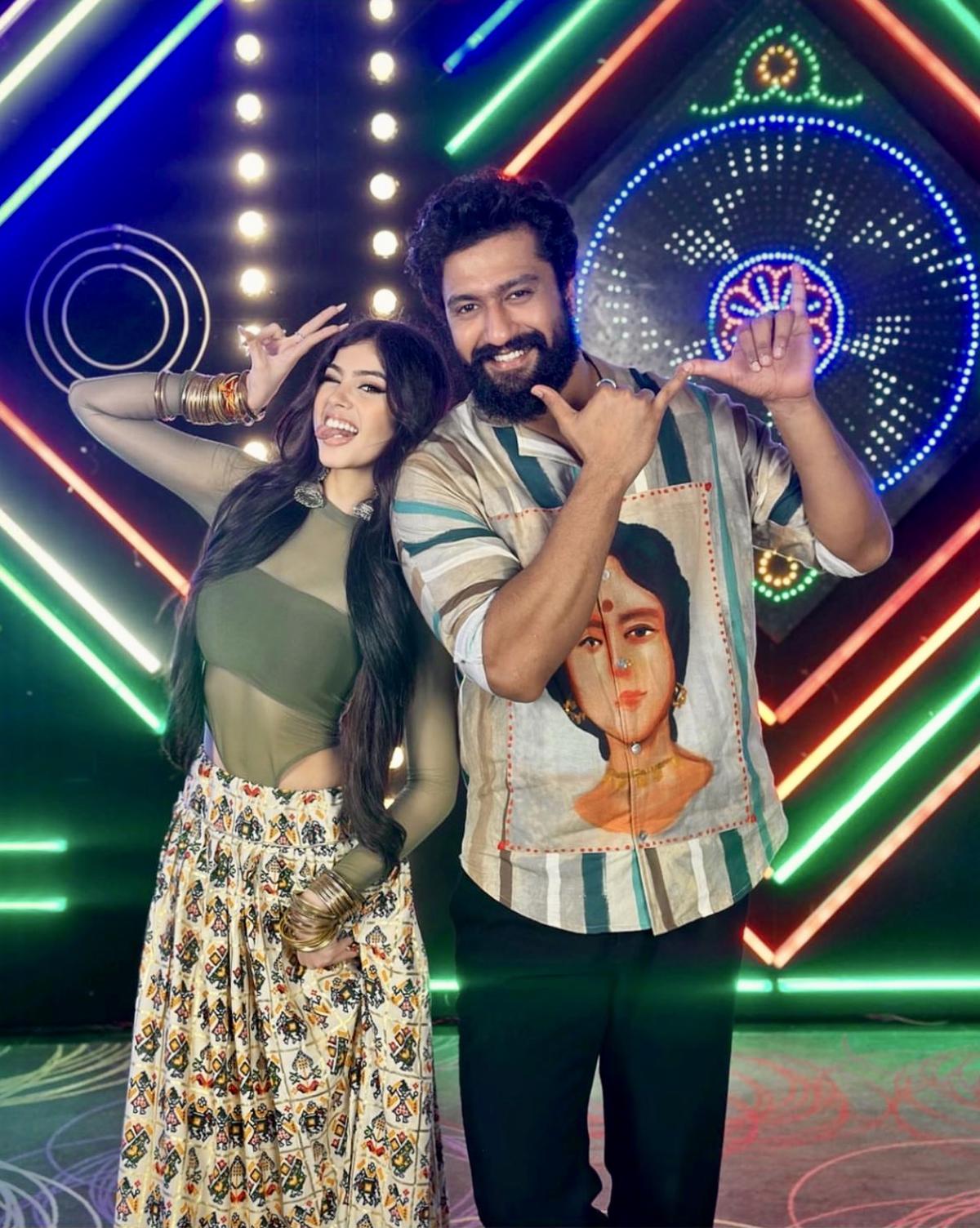
Vicky Kaushal in a House of Urmi shirt
| Photo Credit:
SPECIAL ARRANGEMENT
Although she has been trained as an architect, her heart was in the visual arts, says Anjali. “Even while I was studying, my approach was art-oriented. We had visual art classes which I was interested in.” Finding a niche space, she turned artist.
Anjali Ashok
| Photo Credit:
Siva Shyam
By the time she launched House of Urmi, she had established herself as a freelance artist via her Instagram handle, on which she customises portraits. She started the page while in her fifth year at the KMEA Architecture College, Kuzhivelypady, Kochi. Today, after five years, she has more than 43K followers. “I started drawing portraits while I was in college. It was very organic and unplanned…it just happened,” Anjali says.
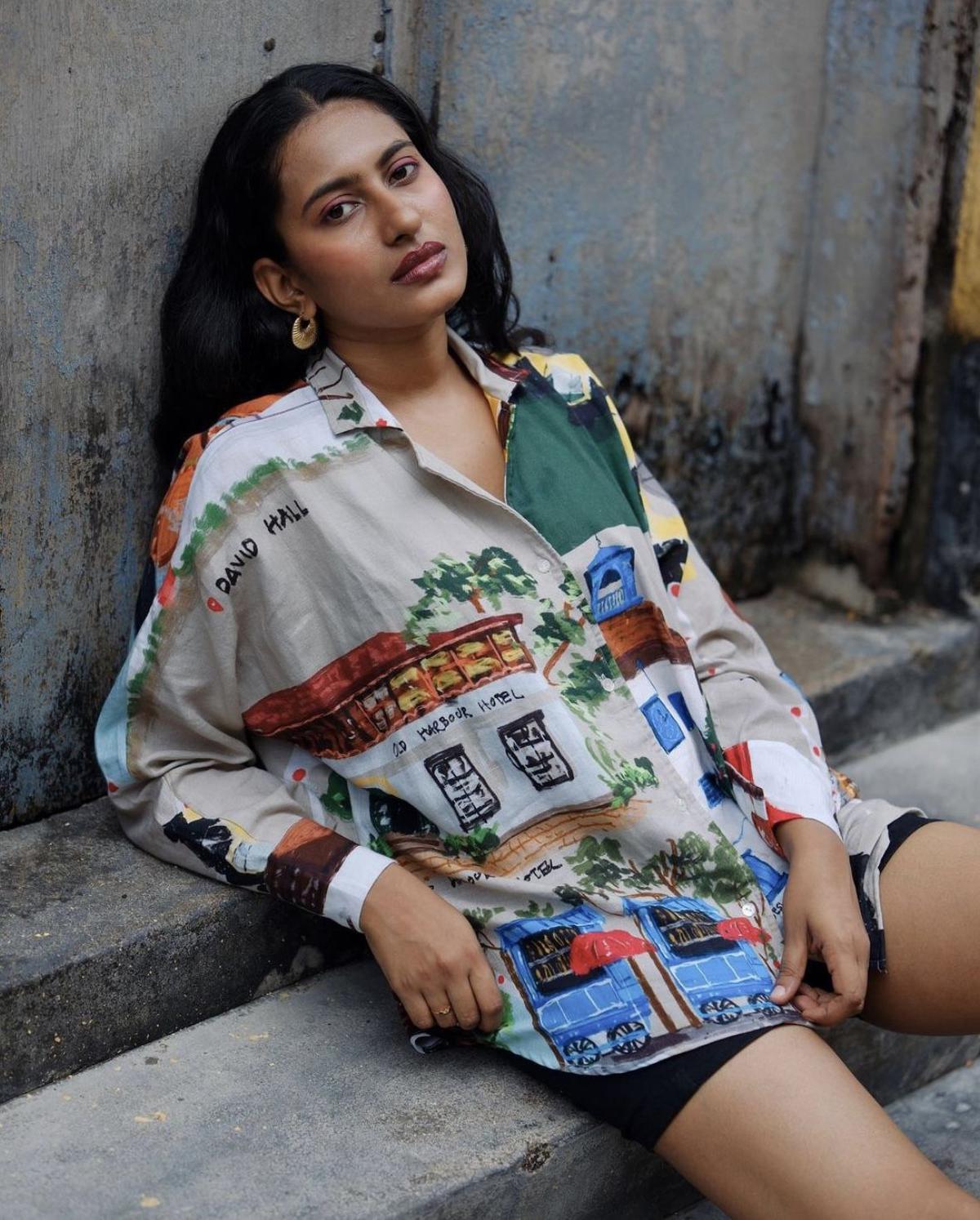
The brand’s prints and iconography use typical Kerala references such as theyyam and kalaripayattu. It is distinctly contemporary with elements such as bold stripes or vivid flowers juxtaposed with the prints. Rather than replicate, she gives the motifs her personal, individualistic spin. The prints tell their charming stories, the sensibility is distinctly pop in terms of the palette and design elements such as tiny red hearts.
Print first
Since she is not a trained designer, her focus is on the prints rather than the silhouette. Hence, mostly, of the garments are gender neutral shirts, vests, kaftans, co-ords, jackets, and tunics. However, some come with bralettes in the same print, adapted for those who prefer a feminine take. “I am not too into the design part so I keep them simple, prints are my focus,” says Anjali, adding that she deliberates over each print, some replete with details, reminiscent of miniature paintings.
For example the Varambu (boundary or a short ridge in Malayalam) collection, launched in 2023, is packed with minute details of vegetation, people and life. The illustration features theyyam, audiences and other elements. “I like minute detailing,” she explains. An example of her attention to details is the fragrance of oudh when a House of Urmi package is opened. “My clients notice it and have commented on it,” smiles the curly-haired designer.
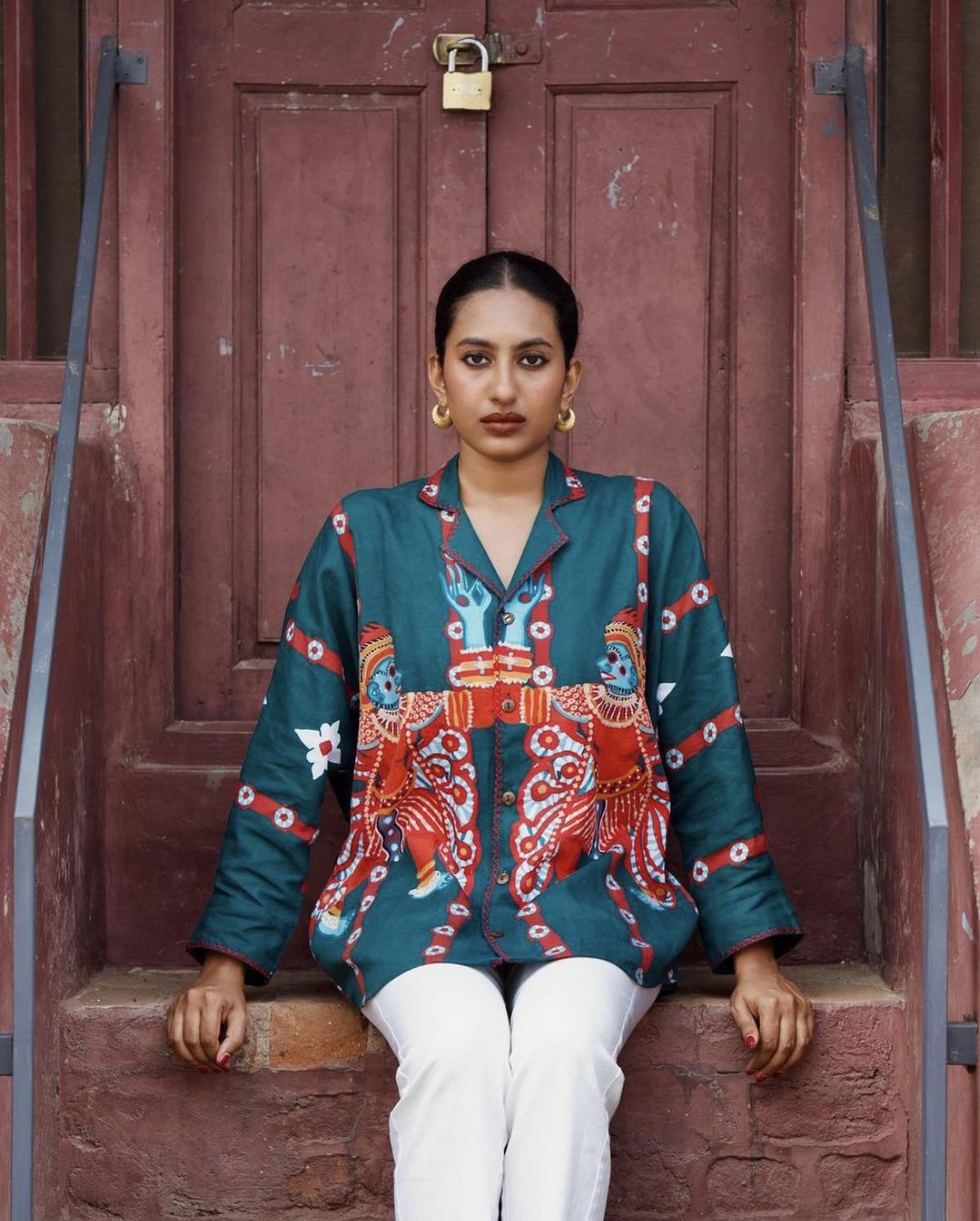
Kerala forms the basis of her inspiration, and the designer draws from teak trees, Fort Kochi, fisherfolk, the women of the Malabar, Kerala’s tribal people, an old coin, writer Vaikom Muhammad Basheer and tholpaavakoothu (shadow puppetry). She looks for more than just visual or pictorial inspiration as the accompanying note for most collections explains. For instance, Mugham – from her Nizhal collection – is inspired by the coins of yore, the design has faces of men from different communities, positioned side by side, challenging any form of prejudice. “That is what I want to say through that print but the wearer could interpret it differently,” says the 27-year-old.
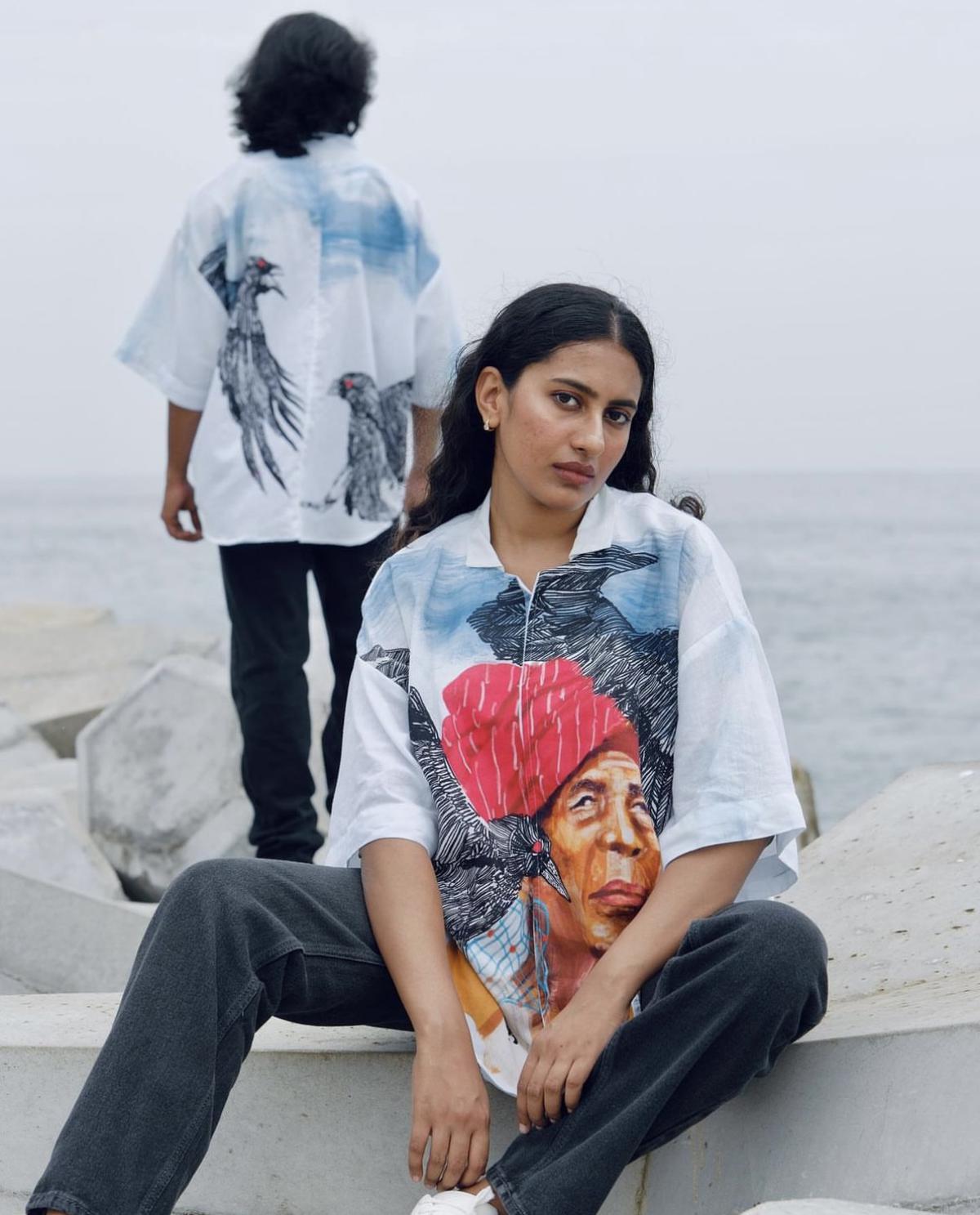
Anjali says the first order she got was for her ‘Rani’ shirt, at a time when she wasn’t thinking of a clothing brand. She had made the digital print shirt for herself and worn it while on holiday in Vietnam. Co-incidentally it was a US-based Malayali holidaying there who asked about it and placed the first order. She then decided to make 50 shirts in order to test the waters and that collection set the ball rolling for the House of Urmi.
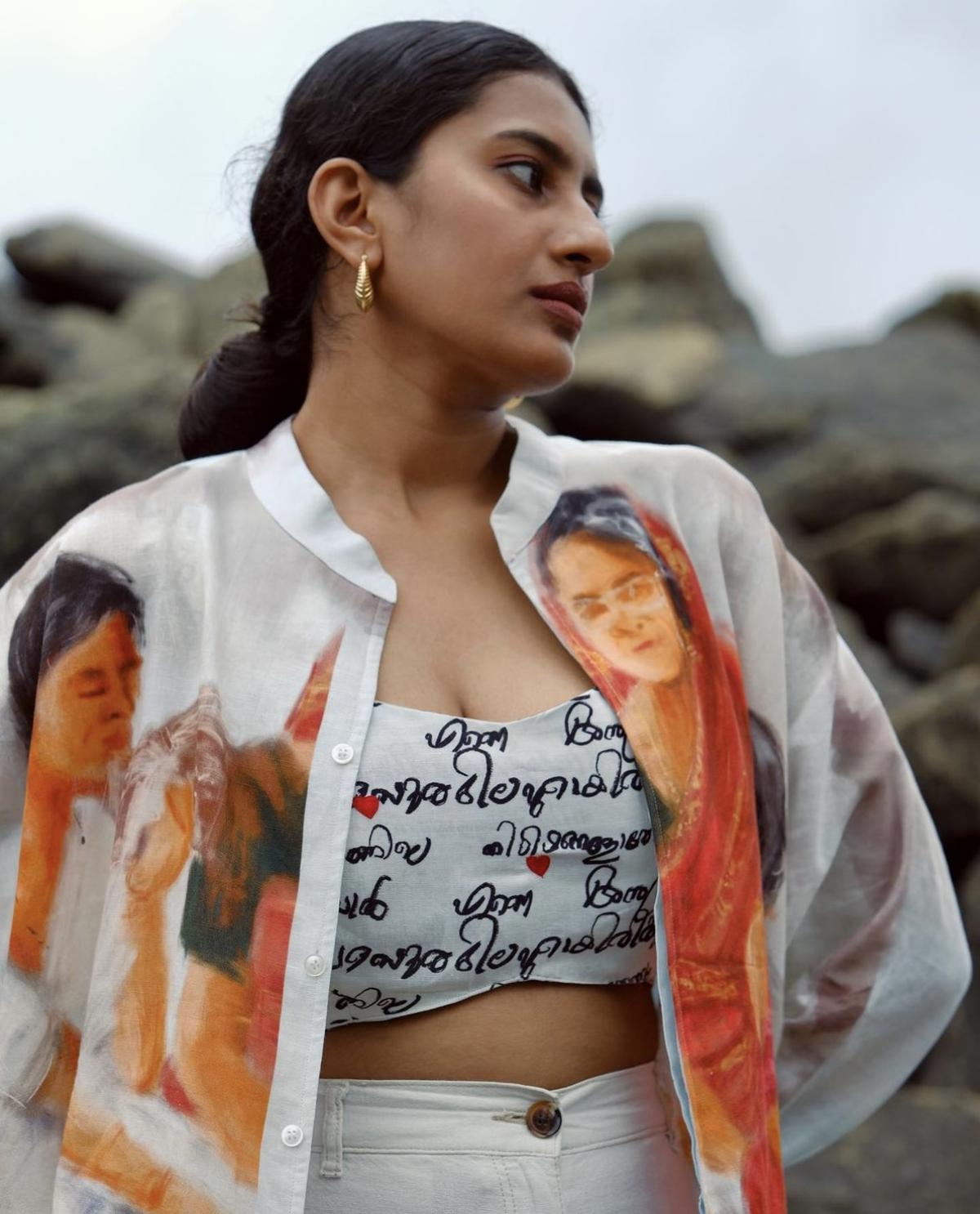
An introvert, Anjali prefers that her work speaks for itself. She doesn’t yet have her own studio, working out of her home in Aluva. The printing is done in Punjab, after which the printed cotton linen yardage is shipped to Kochi where it is tailored. Her USPs are her prints, but on occasion she uses surface embellishment such as embroidery.
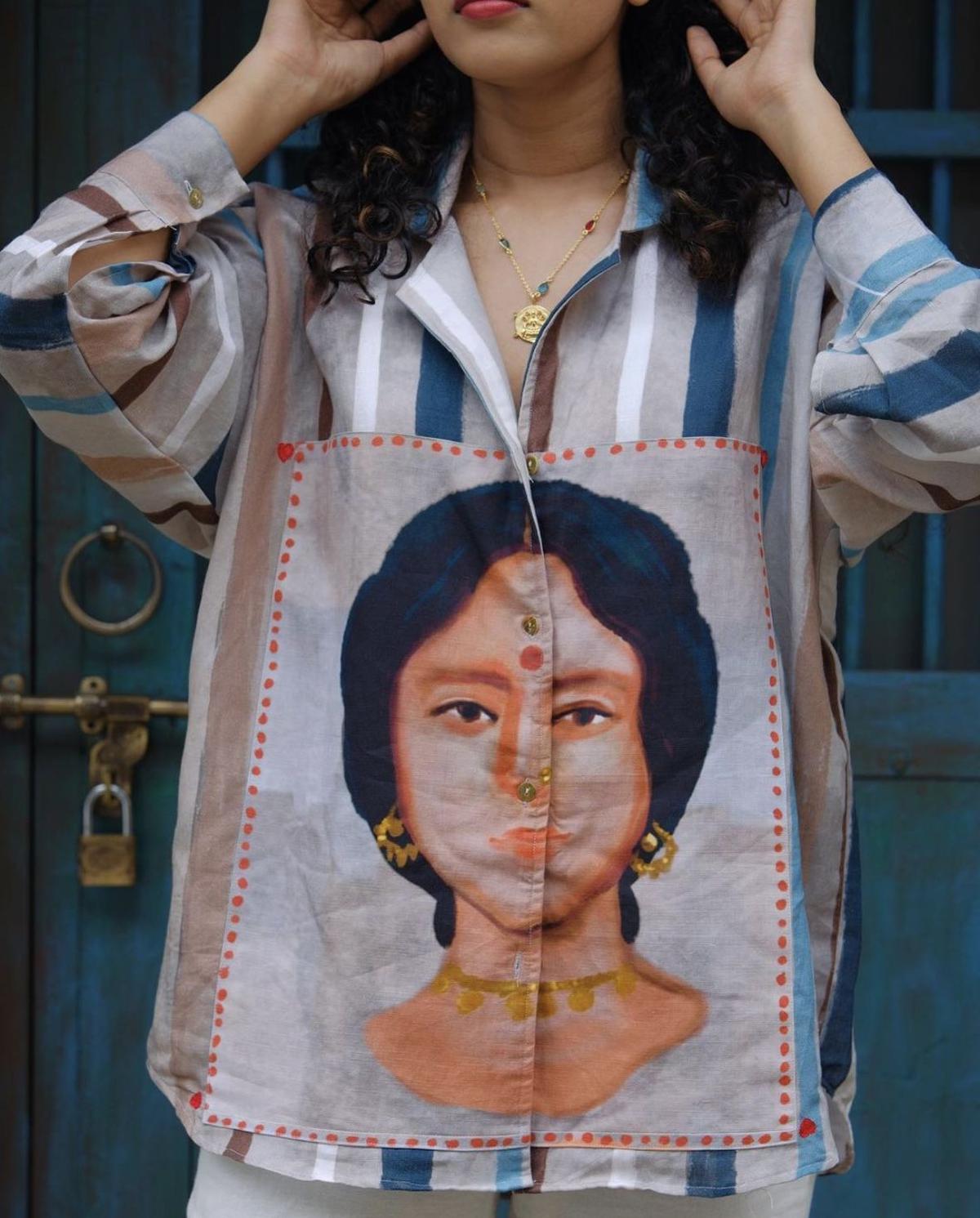
Her latest collection is an an artists’ edit which dropped earlier this month. The first in the collection is an ode to Raja Ravi Varma. She remembers how, when in school, her visual arts teacher gave her a book on the art works of Raja Ravi Varma. “The book had a collection of his works. His journey as an artist, story, palette… inspired me. The Artist Edit Volume I that I am launching is my tribute to his art. There is hand embroidery, patches and layering. It is my take on the process of creating art.”
Urmi retails on houseofurmi.in. Prices range between ₹5,000-₹7,000
[ad_2]
Source link





